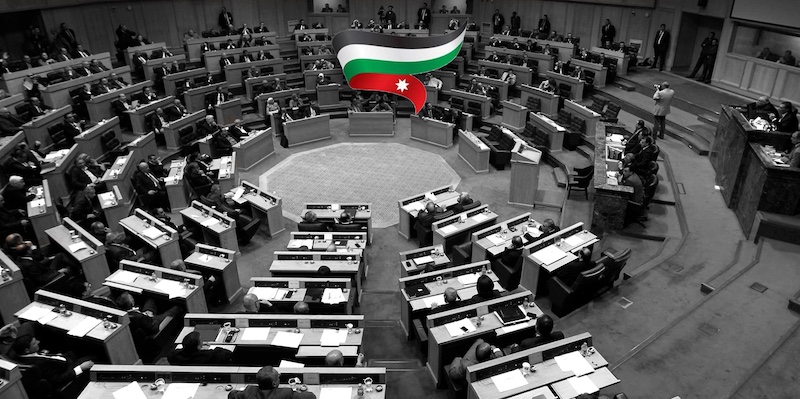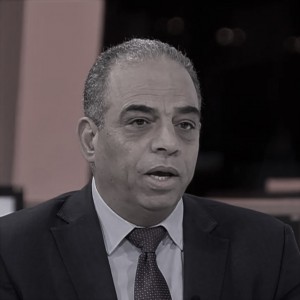
“Jordan’s Parliamentary Elections”, a reflection of the political reality
Ahmad Awad

The parliamentary elections for the 19th parliament that took place in Jordan on the 10th of last November, in terms of timing, course and results, reflect the general context of the political phase that Jordan is experiencing.
The insistence of Jordan’s deep state authorities to hold the parliamentary elections on their constitutional date, despite the demand of prominent government bodies to postpone, in order to avoid the spread of “Covid-19” and to benefit more from the government’s term - which constitutionally ends within one week from the dissolution of the current government – carries messages for the outside as well as the inside.
Furthermore, the deep state authorities are proving to the International political and economic decision-makers in the allied countries of Jordan that Jordan abides by the democratic principles and is committed to the constitution’s requirements and that the Covid-19 pandemic will not stand in that way. That is the image Jordan is keen on showing to its international strategic allies.
Moreover, they send messages to the local political actors, including parties, movements and independents, showing that the dynamics of the political activity are under control. Thus, there is no way to make any changes to its course and that the priority remains as defined by the deep state authorities with no higher limits and that some limits that were pushed by the Arabic Spring no longer exist.
In this context, the role of political parties should remain limited. The roles and ambitions of the emerging social forces will be reinstated under the limits allowed by the deep state authorities and any breach of the established boundaries will result in reconsidering “equations”.
In this context, the Jordanian parliament was suspended in its two parts – the House of Representatives and the senate - since mid-March and 6 months prior to its constitutional date under pretense of the Corona pandemic and the activation of the Defense Law. The suspension was to prevent any “riots” some MPs may cause about defense orders issued by the government to abrogate certain laws and replace them with alternative defense orders.
In addition, many measures were taken to rearrange some “equations”. For example, the teachers’ syndicate – one of the biggest civil and social assemblies in Jordan – was shut down. After the remarkable long strike of the syndicate in September 2019, it successfully achieved its socio-economic goals, a precedent the deep state authorities would never wish to repeat. Moreover, members of the syndicate’s board of directors were arrested for around four weeks, following which; many were forced to an early retirement.
The state was also keen on having transparent and honest parliamentary elections in addition to applying the best prevention measures in order to avoid the spread of “Covid-19” on the elections day.
While rearranging some matters, there were various interventions aiming to ban some individuals from candidacy. In addition, disregarding the fraud committed by candidates close to official authorities, clearly affected the formation of the elected House of Representatives, which was the least representative of the political parties as well as the MPs who had various political orientations and who had a remarkable presence in the previous parliaments. Businesspersons, senior retirees from armed forces and representatives of tribes prevailed.
Despite the precise measures taken by the independent commission of elections to implement the most internationally recognized elections’ standards, starting from publishing the voters’ lists, the candidacy, the voting process and the announcement of results, the people’s and politicians’ trust in the results was as poor as in previous operations.
Importantly, the turnout rate in the last parliamentary elections was the lowest, where it did not exceed 29.9 %, and in some other constituencies, it was no more than 12 % ; mainly in the capital Amman where most Jordanians are of Palestinian origins.
Although this low turnout rate was mainly linked to the fear of citizens of being infected with “Covid-19”, many actors of different political backgrounds claim that most people do not trust the political and electoral operation and also fear the marginalization of the parliament’s role in Jordan’s political life.
On another hand, the attitudes of most of these actors and observers reflect the inability of many Jordanians of Palestinian origins to participate in the elections. It also reflects their feeling of marginalization led by deep state authorities and that their belief that their participation in the political life is only delusional and is not compatible with their economic and social presence in the state. Consequently, it clearly left an impact on the formation of the last government and the senate, which usually takes place by appointment.
To sum up, the last parliamentary elections in their different stages, procedures and results proved that the democratic transformation in Jordan has to remain within the -previously drawn political and security boundaries. It also specified that no breaches are allowed and that the parliamentary governments and general freedoms are nothing but illusions and dreams that are hard to get.
Ahmad Awad
